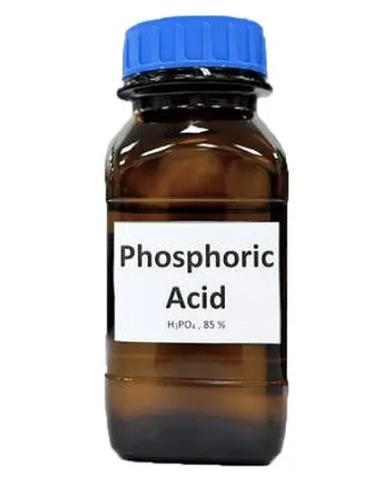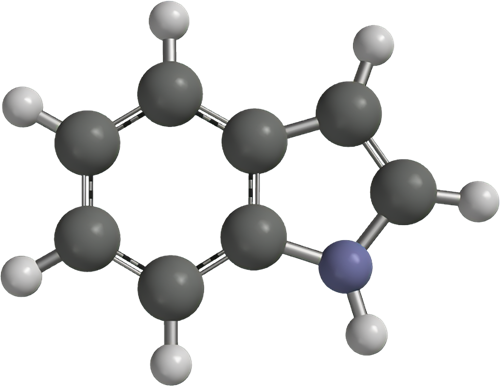Why is Phosphoric acid used in food?
Phosphoric acid is an inorganic compound acid derived from the mineral phosphorus. It is a crystalline solid, but in its less concentrated form, it is a colourless syrupy liquid. Phosphoric acid is used to acidify foods and beverages and is a starting point for producing many phosphate derivatives.
Used in food
In addition to being a chemical reagent, Phosphoric Acid Food Grade is used as an ingredient in foods and beverages. Phosphoric Acid is typically used for pH control in the food industry, for example, in the manufacture of cheese products, fats, and shortenings. It is also used in soft drinks, particularly cola, in the beverage industry. Phosphoric acid can be used to leaven baked goods, add a sharp flavour to beverages, increase the shelf life of sweet drinks and food or maintain the structure and hydration of processed meat and seafood, according to an August 2017 review in Comprehensive Reviews in Food Science and Food Safety.

Coke, Pepsi and many other dark soft drinks use phosphoric acid for their sharp flavour and to extend shelf life. Clear soda usually uses citric acid for a similar taste and skips the phosphorus, so it's a better choice for people looking to limit how much phosphorus they eat or drink.
While milk naturally contains phosphorus, phosphoric acid is often added to milk or juice-based drinks that use whey for added protein. Because phosphoric acid is a strong acid, it's commonly used to change the pH of a beverage using whey, which is a strong base, per the United States Dairy Export Council.
A baked good recipe usually calls for baking soda or baking powder to leaven the final product. Baking powder combines baking soda and two different acids, one of which is a salt of phosphoric acid. When the phosphoric acid salt is combined with water, it begins the leavening process, according to North Carolina State University. The second acid adds additional leavening once the product is heated, making baking powder a "double-acting" leavening agent.
Benefits
It gives soft drinks a tangy flavour and prevents the growth of mould and bacteria, which can multiply easily in a sugary solution. Most of the soda's acidity also comes from trusted Source phosphoric acid.
Phosphoric acid is made from the mineral phosphorus, which is found naturally in many foods. It works with calcium to form strong bones and teeth, according to the National Institutes of HealthTrusted Source. It also helps support kidney function and how your body uses and stores energy.
Potential dangers
It's more common to have too much phosphorus than not enough. Phosphorus is found naturally in many foods, and phosphoric acid is used as an additive, so most people get enough in their diet.
Your body needs phosphorus, but too much of it can cause problems. StudiesTrusted Source suggests that excessive phosphorus intake can put you at risk for osteoporosis and heart disease. Calcium and phosphorus work together to form and maintain healthy teeth and bones. The minerals need to be balanced to be effective.
Too much phosphorus can decrease the amount of calcium in your body, leading to bone loss. It can also impair your body's ability to use other minerals like iron, zinc, and magnesium.
For example, research links high consumption of soda to an increased risk of bone fractures. In one observational study, people who drank soda daily doubled their risk of breaking a bone.
Your kidneys help your body get rid of excess phosphorus. Some people with chronic kidney disease may need to monitor the amount of phosphorus in their diet because their kidneys may be unable to remove excess phosphorus.
Phosphoric acid is dangerous if you come into contact with it as a chemical substance. The toxic fumes can irritate your skin, eyes, and respiratory system.
You may like
Related articles And Qustion
See also
Lastest Price from Phosphoric acid manufacturers

US $10.00/KG2025-04-21
- CAS:
- 7664-38-2
- Min. Order:
- 1KG
- Purity:
- 99%
- Supply Ability:
- 100 mt

US $3465.00/KG2025-04-11
- CAS:
- 7664-38-2
- Min. Order:
- 1KG
- Purity:
- 85%
- Supply Ability:
- 400MT per month





